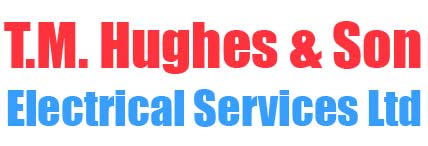Many homes in Essex include outdoor areas if you have a garden you probably use tools such as electric lawnmowers, hedge trimmers and strimmers. Outdoor electricity must be treated with respect and some caution; careless use can lead to unnecessary risk. Here are a few safety guidelines that will keep you and your family safe from harm.
Outdoor Sockets
The first step is to ensure you have outdoor power installed with the correct outdoor sockets. Running extension leads from the home is bad practice, extension leads are a tripping hazard, and common indoor outlets don’t include built-in RCD fuses, potentially fatal if you ever cut through a lead while mowing the lawn or trimming a hedge.
Proper outdoor sockets are weather-resistant, have built-in fuses and a sprung cover which keeps the elements out and helps secure plugged-in power tools.
If there’s no outdoor power at your home or yout outdoor sockets are inadequate, get a qualified electrician to install new sockets or upgrade existing ones.
Although outdoor sockets are weather-resistant, they should be kept off the ground and away from areas of water, such as swimming pools, outdoor taps, water butts and leaky guttering. There is only so much water sockets can resist sockets that are accidentally soaked by a leak, flood or spillage are an electrocution risk and can damage your electrical system.
Never use outdoor sockets in the rain, water could get into the plug socket itself, when closed and not in use they’re rain resistant.
Finally clean your sockets regularly, (outdoor exposure ensures they’ll get dirty, quickly) and watch you don’t knock them when mowing the lawn or undertaking any other DIY activities.
Outdoor Power Tools
Keep your outdoor power tools clean and store them in a dry place such as indoors, your garage or a watertight shed, starting up a wet power tool is an electrocution risk.
When using power tools, keep them away from areas of water such as ponds and swimming pools, this goes for any outdoor electrical appliance, not just tools, remember electricity and water don’t mix.
Always run power tools off the correct outdoor sockets preferably with built-in RCD fuses, if not use a plug-in power breaker.
Never overload a socket by running too many power tools at once off a single outlet.
Make sure power cords haven’t degraded in any way with no damage, kinks or cuts. When using the tool, make sure the power cord’s not twisted anywhere and never stretched at any time.
Most important of all be mindful of the cord while carrying out the task, keep it away from mower/strimmer/trimmer blades at all times.
Make sure members of your family are a safe distance from the tool when in use, and always unplug when not in use.
Outdoor Lighting
When buying outdoor lighting make sure it’s waterproof and suitable for outdoor use always buy from a reputable retailer and check it has the CE mark (European Community Safety Symbol)
Never use interior lights outside whether it’s portable lighting or permanent installation.
Portable outdoor lighting should be moved indoors when not in use even if it’s waterproof; this ensures it will last longer giving you years of service.
Plug portable lighting into outdoor sockets and make sure the lead is out of harm’s way in a position where no one will trip over it.
Leads powering permanent lighting installations need to be buried a suitable depth underground eliminating the risk of cutting when mowing the lawn.
Keep outdoor lights turned off during the day and when not in use, if possible use LED bulbs which will save you money on your electricity bill.
Following these guidelines will ensure the safety of you and your family, let us know if you need any help with your outdoor power.
